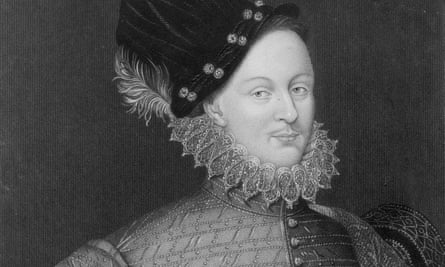Scholars often say that no one doubted Shakespeare’s authorship until the 19th century. The response is a rote way of brushing off persistent questions about the attribution of the world’s most famous plays and poems – but it may not be true.
New scholarship suggests that doubts about Shakespeare’s authorship first arose during his lifetime – in a book called Palladis Tamia, Wits Treasury, published in 1598 by the theologian Francis Meres.
Roger Stritmatter, a professor at Coppin State University who has spent years studying Meres’ book, argues that Meres asserted “Shakespeare” as the pseudonym of Edward de Vere, 17th Earl of Oxford. Stritmatter’s research has been published in the academic journal Critical Survey. Shakespeare scholar Graham Holderness, who edited the journal, worries that shutting down debate about the authorship endangers academic freedom. “When you come across traditional Shakespeareans comparing Shakespeare authorship doubt to conspiracy theories – anti-vaxxers or climate change deniers – I mean, I think that’s wrong … for all sorts of reasons”, he said.
Palladis Tamia is a “commonplace book” of sayings and comparisons. It has long been known to scholars as an essential text in Shakespeare studies. In a chapter titled, A Comparative Discourse of Our English Poets, with the Greeke, Latine, and Italian Poets, Meres compares English writers with classical writers using an as-so equation. For example: “As the soul of Euphorbus was thought to live in Pythagorus, so the sweet, witty soul of Ovid lives in mellifluous and honey-tongued Shakespeare.” Meres mentions Shakespeare nine times, praising him as a poet and playwright and listing 12 of his plays.
While some scholars have dismissed Meres as a “mere copyist” who compiled lists, others have suspected that his work was more important. Meres may be following some kind of “critical formula” or even expressing “a hidden critical judgment on Shakespeare,” wrote the scholar Don Cameron Allen in 1933. Until recently, that judgment has remained obscure.

Stritmatter’s article, Francis Meres Revisited: Wit, Design and Authorship in Palladis Tamia, observes that Meres, who had published a mathematical treatise called God’s Arithmeticke in 1597, is committed to symmetry in his comparisons – for example, setting eight Greek writers against eight Latin writers and eight English writers. Among the 59 lists, a handful appear asymmetric but conceal a hidden symmetry. Six ancient epigrammatists are compared to five modern ones – “Heywood, Drant, Kendal, Bastard, Davies” – which seems like a discrepancy until one realises that “Davies” can stand for two persons: John Davies of Hereford and Sir John Davies, both well-known writers of epigrams.
“Essentially it’s a book of logic puzzles,” said Stritmatter. “When the lists aren’t symmetrical, there’s a reason for it.” Another imbalance appears in a list of comedic dramatists, in which 16 ancient writers are set against 17 English writers, including the Earl of Oxford and Shakespeare. The question arises: “If one name [Davies] can stand for two persons, can two names refer to the same person?”
Drawing on the history of commonplace book arrangement, Stritmatter notes that the order of names in Meres’ list aligns each classical writer with his English counterpart: Plautus and Anthony Munday wrote comedies about braggart soldiers; Archippus Atheniensis and Thomas Nashe wrote satires involving fish. Why is Aristonymus aligned with Shakespeare? Nothing is known of Aristonymus, except that his name means, “the aristocratic name”. The Earl of Oxford, who aligns with no one, is the only aristocratic name on the list. Stritmatter argues that the alignment of “Shakespeare” with “the aristocratic name” points to Oxford. “It may be concluded that Francis Meres, using ‘Aristonymus’ as the mediating signifier, said that ‘Shakespeare = Oxford.’”
“I was sceptical, but Stritmatter’s scholarship on this matter is sound,” said the scholar Ros Barber, who teaches Introduction to Who Wrote Shakespeare at the University of London. “Stritmatter’s article doesn’t prove that the Earl of Oxford wrote the plays, but it does argue quite strongly that Meres believed he did. Given the ubiquity of anonymous and pseudonymous publication in the 1590s and the dangers of publishing things that upset the authorities, it’s neither surprising that he might believe this nor that he chose to express it so covertly.”
Edward de Vere, 17th Earl of Oxford, was an eccentric nobleman at the Elizabethan court, praised by contemporaries for his learning and patronage of the arts. Though a favourite of the queen, he had a reputation for scandal (duelling with his enemies, crossdressing, squandering his inheritance). His contemporary, the critic Gabriel Harvey, lampooned Oxford’s “womanish” works, ostentatious fashions, and obsession with Italy, calling him “a passing singular odd man”. Though he was praised as a playwright, no plays under his name survive. In 1589, the critic George Puttenham recorded a rumour that Oxford wrote covertly, describing a “crew of Courtly makers … who have written excellently well as it would appear if their doings could be found out and made public with the rest, of which number is first that noble Gentleman Edward Earle of Oxford.”
In 1920 the English schoolteacher J Thomas Looney published “Shakespeare” Identified in Edward de Vere, the Seventeenth Earl of Oxford, cataloguing parallels between Oxford’s life and Shakespeare’s plays that were, in his view, “so amazingly strange and wholly unique” that they justified “a very strong belief that the Shakespeare plays are the lost plays of the Earl of Oxford.” Over the last century, the Oxfordian theory has attracted prominent supporters, including Sigmund Freud; the Pulitzer prize-winning historian David McCullough; the Nobel prize-winning physicist Roger Penrose; the military strategist Paul Nitze; actors Derek Jacobi, Jeremy Irons, and Mark Rylance; and several justices of the US supreme court.
after newsletter promotion
Stritmatter suggests that Oxford published under someone else’s name because of the social stigma associated with aristocrats writing for the stage and publishing plays. “Tis ridiculous for a Lord to print verses,” wrote the Renaissance jurist John Selden. “Tis well enough to make them to please himself, but to make them public is foolish.”
Stritmatter said other writers referred to Oxford’s use of the pen name, too, though obliquely. When the character Gullio in The Return from Parnassus (c1600) hears a poem in the style of Shakespeare, he exclaims, “Noe more! I am one that can judge according to the proverb, bovem ex unguibus,” altering the saying leonem ex unguibus aestimare (“to know a lion by its claws”) to bovem ex unguibus (“to know an ox by its claws”). Gullio has recognised the hand of Oxford, sometimes referred to as “Ox,” in the Shakespearean verses, said Stritmatter. “It’s a good joke!”
“What’s in Meres is a confirmation of something people have been saying for a long time,” said Stritmatter, who argues that Meres has been misunderstood because his writings belong to an esoteric tradition that has been lost.
“I just can’t tell you how irrelevant all that numerology is to me and how unconvinced I am,” said Alan Nelson, professor emeritus at the University of California and author of Monstrous Adversary: The Life of Edward de Vere, 17th Earl of Oxford, who dismissed Stritmatter’s argument as “a thoroughly arcane interpretation.”
“In a way it depends on what you think Meres was,” adds Nelson, who sees him merely as a list-maker. “To me, there’s no sophisticated intellectual organisation. It’s just a list.”
